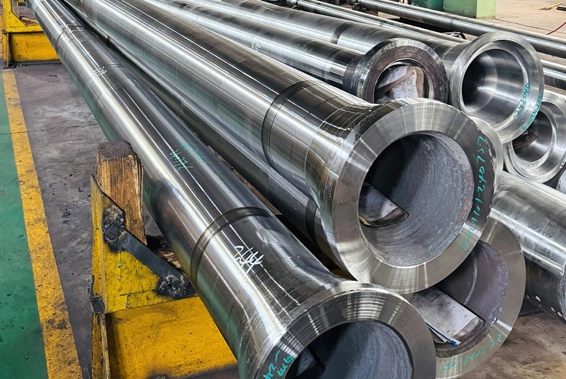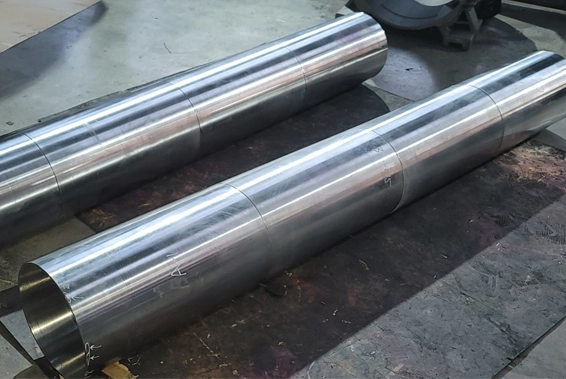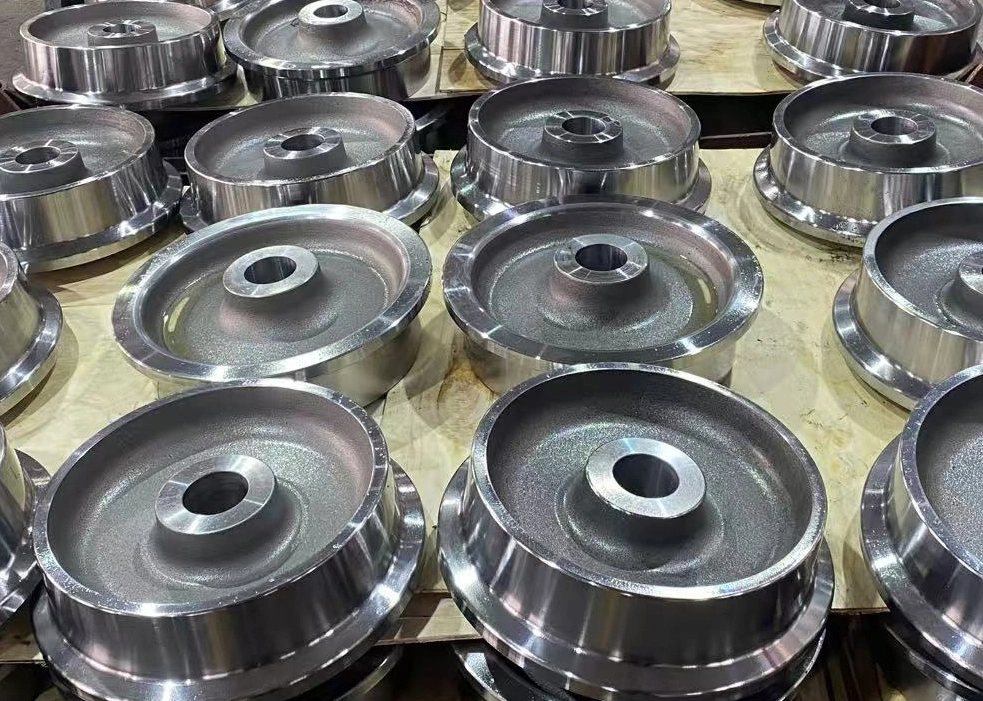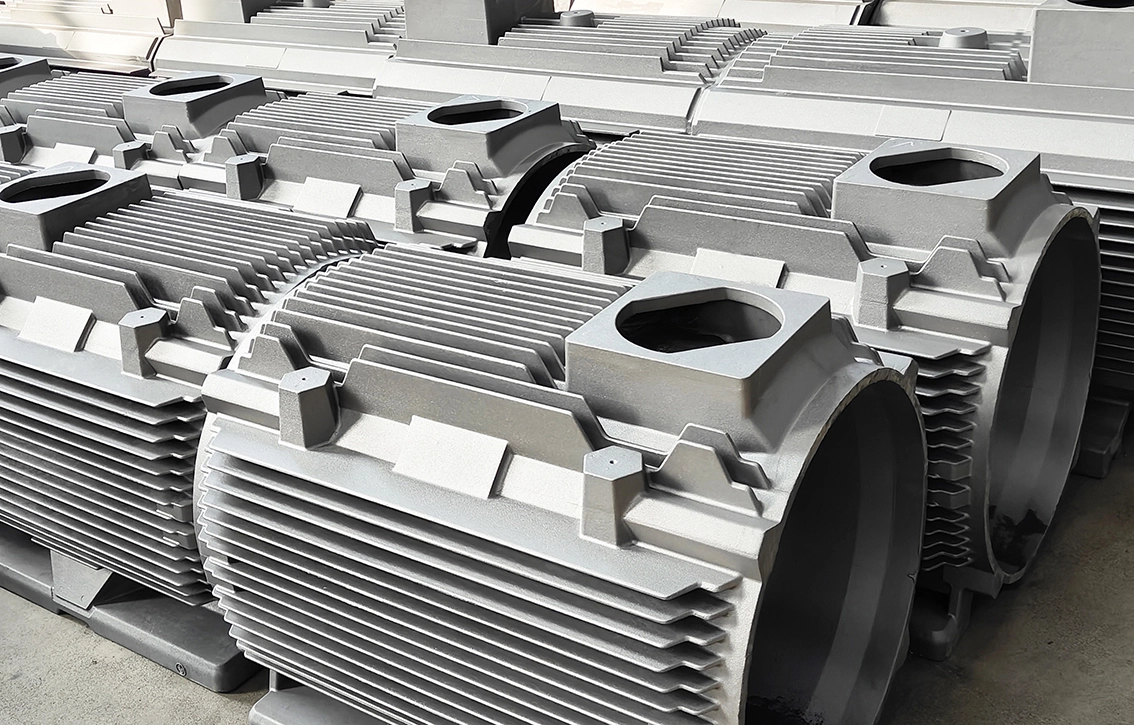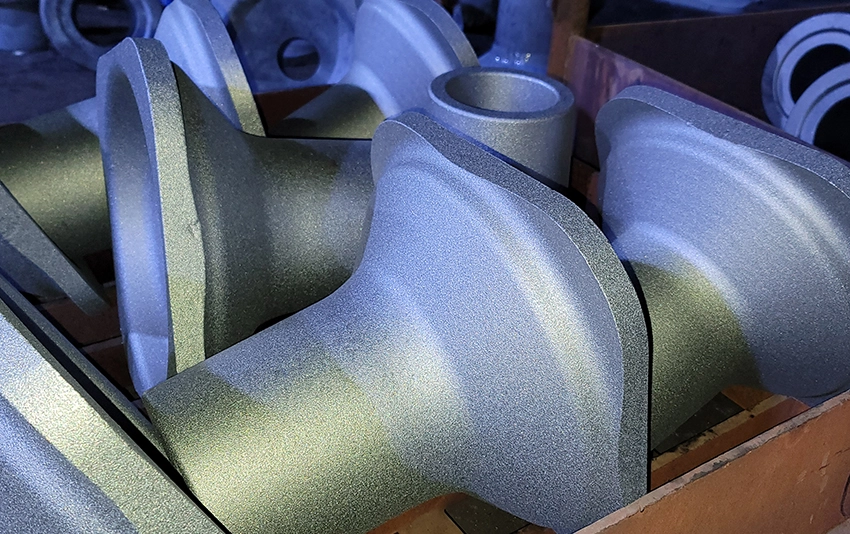Characteristics of Centrifugal Casting Tubes:
1. High Structural Integrity:
The centrifugal force pushes impurities and gas bubbles to the outer edges, producing a clean, dense structure with minimal defects.
2. Uniform Wall Thickness:
The controlled rotation ensures even distribution of metal, achieving consistent thickness along the tube's length.
3. Excellent Material Properties:
The casting process enhances the mechanical properties, such as strength, wear resistance, and durability, especially in high-stress applications.
4. Versatile Material Options:
Tubes can be cast from various metals, including carbon steel, stainless steel, alloy steel, and other non-ferrous metals, depending on the application.
5. Customization:
Centrifugal casting allows for tubes of varying diameters, lengths, and thicknesses to meet specific industrial requirements.
Applications of Centrifugal Casting Tubes:
1. Heat Exchangers:
Used in boilers, condensers, and evaporators where tubes must withstand high temperatures and pressures.
2. Oil and Gas Industry:
Ideal for applications like pipeline components, casing, or tubing in high-pressure environments.
3. Power Plants:
Found in steam turbine components, pressure vessels, and other critical systems requiring durable and heat-resistant tubes.
4. Chemical Processing:
Used in reactors, columns, and piping systems that handle corrosive substances.
5. Automotive and Aerospace:
Utilized in exhaust systems, turbochargers, and other components requiring lightweight yet strong tubes.
Advantages of Centrifugal Casting Tubes:
1. Superior Strength and Durability:
The dense and defect-free structure ensures the tubes can withstand high pressures and extreme temperatures.
2. Corrosion and Wear Resistance:
Ideal for harsh environments, such as chemical or marine applications.
3. Cost-Effective for Large Production Runs:
Efficient manufacturing with reduced material waste compared to other methods.
4. Customization for Specific Needs:
Tubes can be produced in a wide range of sizes and materials to meet diverse industrial demands.
5. Minimal Post-Processing Required:
The smooth inner and outer surfaces often reduce the need for additional machining or finishing.
Types of Centrifugal Casting:
· Horizontal Centrifugal Casting: For long tubes with consistent dimensions along their length.
· Vertical Centrifugal Casting: Used for shorter or more complex shapes.
Centrifugal casting tubes are essential components in industries where strength, precision, and resistance to harsh conditions are critical.
 English
English  Deutsch
Deutsch  français
français  русский
русский  فارسی
فارسی  العربية
العربية  Español
Español  日本語
日本語  한국어
한국어  italiano
italiano  português
português  dansk
dansk  Suomi
Suomi 





